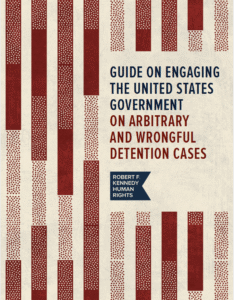Over the past few years, efforts by governments to suppress political space and freedom of association, assembly, and expression in Africa, have taken on more volatile and violent forms. Over and over again, leaders have either revised their constitutions or enacted repressive laws and policies, targeting civil society and stifling political opposition. A systematic tightening of civic and political space, both prior to, and during elections in places like Kenya, Ethiopia, Djibouti, Egypt, Rwanda, Zimbabwe, Central African Republic, Burkina Faso, Uganda, and Burundi to name a few, has eroded some of the most basic freedoms essential to any well-functioning democratic society and established a continent wide trend of human rights violations during election time. Now is the time for the international community to put a halt to this corrosive pattern of destruction. There is a chance, ahead of elections in Uganda, Rwanda, and Kenya, to closely monitor and criticize the electoral processes in these countries. Only such vigilance will ensure that human rights violations do not continue with utter impunity.
There is no better example of this than what is happening in Burundi today. In 2015, the outbreak of violence in Burundi resulting in scores of deaths started with the election period, which then rapidly deteriorated into a widespread human rights and humanitarian disaster. Violence particularly mounted after the party of incumbent President Pierre Nkurunziza’s officially nominated him for a third term – a move which not only violated the country’s 2005 Constitution, and the 2000 Arusha peace agreement, but was teetering on the verge of mass atrocity crimes – including the excessive use of force, torture, and extrajudicial killing of unarmed residents and protesters by government forces.
This past week, Amnesty International released satellite images and video footage of at least 76 bodies of Burundians buried in mass graves. The images of mass graves support witness accounts that Burundians were killed by government security forces and pro-government militia in December 2015, and subsequently buried.
In April 2015, reacting to anticipated election related violence, thousands fled the country and thousands of others have died. Members of the ruling party’s youth league, known as Imbonerakure, armed with guns and nail studded clubs, mobilized across the country, and threatened anyone who opposed President Nkurunziza’s bid to secure another term. Though the violence has been primarily political, Senate President Révérien Ndikuriyo has used inflammatory rhetoricfrighteningly reminiscent of what was used by the Hutu-led government to incite violence before the 1994 genocide in neighboring Rwanda – language condemned by the UN Secretary General as “reprehensible and dangerous.” Indeed, reports of kidnappings, arbitrary detention, rape, torture, and extrajudicial killings were widespread throughout 2015, and took place often at the behest of the police and intelligence agents. The suspected mass graves that were recently uncovered by Amnesty International signal only the latest and worrying trend in the aftermath of election violence.
Despite repeated calls by the U.S. Government and the U.N. Security Council for peacekeeping troops, the African Union has abandoned its plan to deploy troops due to fierce opposition from President Nkurunziza. The rejection of peacekeepers not only advances the climate of fear in the country, but could also galvanize the opposition and further escalate violence in the country.
Restricting civic and political space in Burundi or elsewhere on the continent, causes a domino effect that allows renegade leaders to avoid accountability and violate state and international obligations essential to the maintenance of a free and democratic society.
Rahma Hussein is a human rights lawyer and a current Legal Fellow working on Africa related case and advocacy work at RFKennedy Human Rights and has lived and worked on genocide related issues in Rwanda.
John Heffernan, directs RFKennedy Human Rights, Speak Truth To Power and has lived in Africa and worked on issues related to violations of human rights and international




